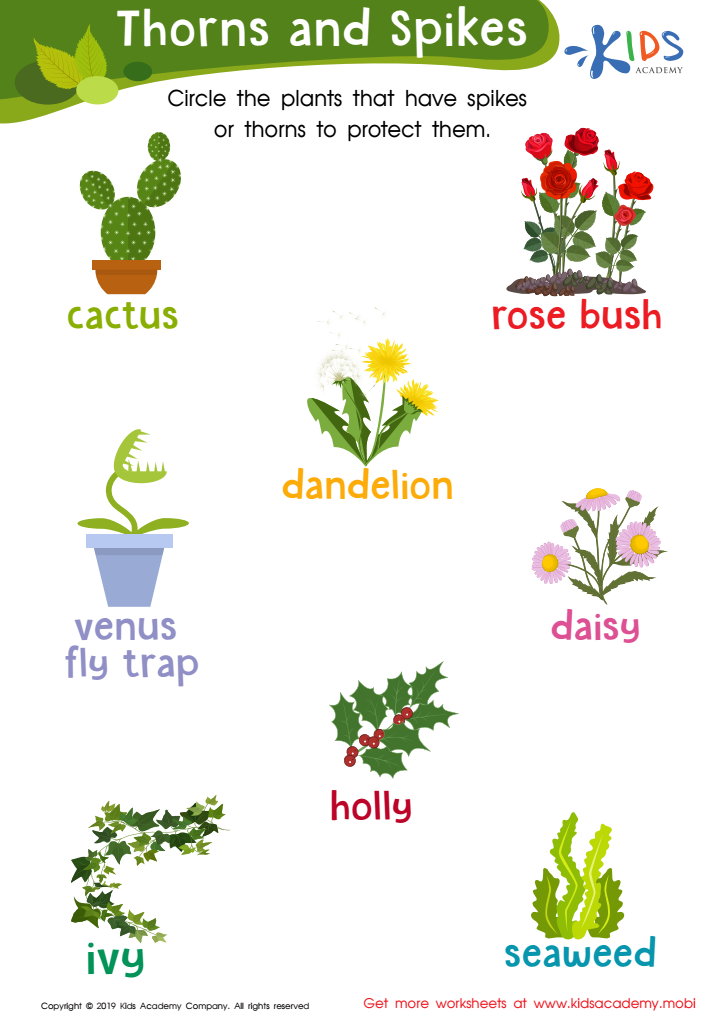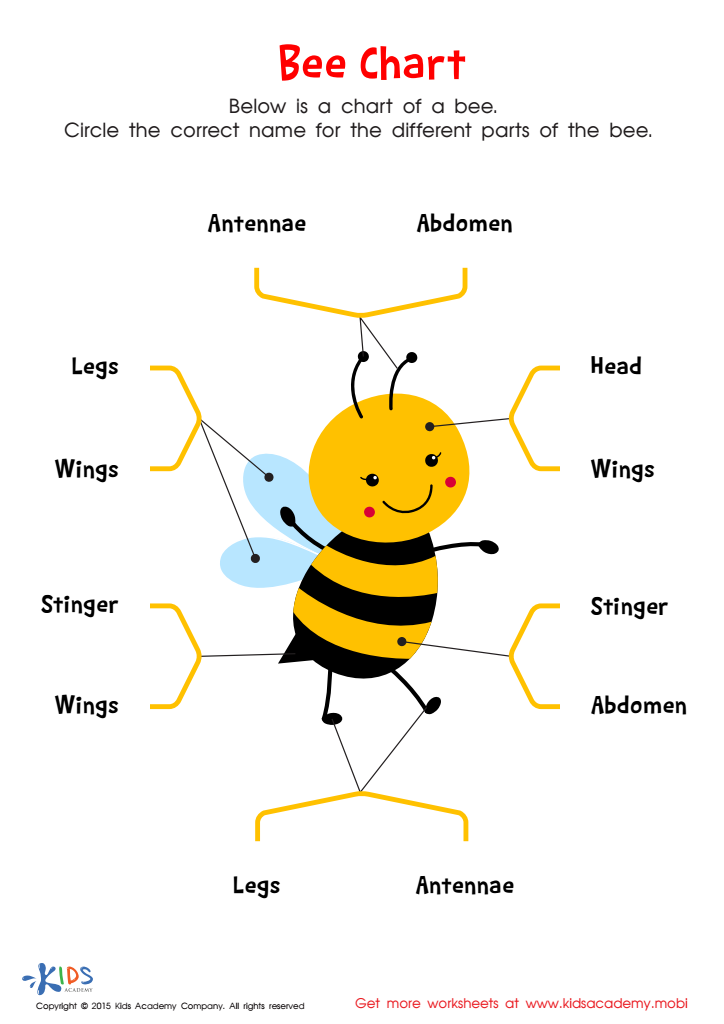Science knowledge Normal Science Worksheets for Ages 3-6
3 filtered results
-
From - To
Boost your child's science journey with our "Science Knowledge Normal Science Worksheets" tailored for ages 3-6. These worksheets brilliantly blend fun with learning, covering essential topics from plant life and animals to basic physics and weather. Brightly illustrated and thoughtfully designed, our activity sheets foster curiosity and foundational understanding. They support early learning by incorporating hands-on experiments and engaging exercises that make science approachable and exciting. Perfect for both classroom and at-home learning, our worksheets are a fantastic resource to spark a lifetime love for science in young learners. Get started today and watch your little scientists thrive!


Thorns and Spikes Worksheet


Space: Assessment 2 Worksheet
Parents and teachers should prioritize introducing Science knowledge to children aged 3-6 because these formative years are crucial for cognitive and intellectual development. Early exposure to science fosters naturally curious minds, stimulating critical thinking and problem-solving skills. At this tender age, kids are like sponges, eagerly absorbing information about their surroundings. Science, presented through interactive activities like simple experiments or nature walks, can enhance sensory awareness and observation skills.
Moreover, early science education helps children develop a sense of inquiry and curiosity, essential for lifelong learning. It instills a basic understanding of everyday concepts such as cause and effect, living and non-living things, and weather changes. These basic science concepts form a foundation for more complex understanding in later years, making future learning easier and more intuitive.
Engaging children in science early also prepares them for the increasingly STEM-oriented world. By igniting a passion for discovery and learning, we set the stage for future interest in science, technology, engineering, and mathematics. Additionally, activities like these enhance a child's language skills as they learn new vocabulary and phrases.
Inculcating a love for science can further cultivate attributes like patience, perseverance, and resilience, which are invaluable life skills. Thus, nurturing scientific curiosity from an early age ensures well-rounded intellectual growth and prepares children for future academic and real-world challenges.

 Assign to My Students
Assign to My Students




















